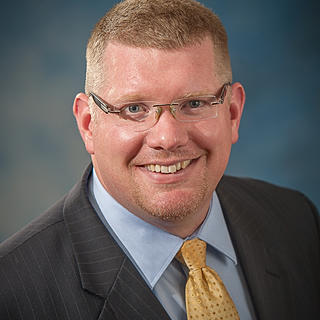Estate Planning Guide for Young Families: 2021
- Chad A. Ritchie, Esq.
- Apr 13, 2021
- 6 min read
Updated: Jun 11, 2025

If you have just had a baby or have young children that are under 18 years old you need an estate plan. Parents with young children are busy raising their kids and working to make ends meet. However, have you thought about what would happen to your children if you weren't around? No one expects to die or become disabled when they have a young family, but planning for these possibilities is one of the most important thing you can do for you kids.
Here is what happens to your estate if you die without a formalized Estate Plan in Illinois:
What Happens when there is No Estate Planning for Young Families?
1. Division of Probate Assets:
Your surviving spouse and your children will divide your probate assets 50/50. It doesn't matter if your child is 6 months old -- they still inherit 1/2 of your probate estate. It doesn't matter if you own a business -- your children will inherit 1/2 of your business. Also, it doesn't matter if your spouse may need all of your estate to live on after you die -- without estate planning your children are entitled to 1/2 of your probate estate.
2. Who takes care of the children?
If there is a surviving spouse, then he or she would continue to care for the children. However, if both parents die at the same time and no guardians for the children have been named in a will, then family members would have to petition the court to be appointed guardians of your children. This could be a contentious court battle to see who becomes guardians of your children and you don't have any control over who gets appointed.
3. How is money managed for your children?
In the event that both parents would die at the same time (such as in a car accident, etc.) without an estate plan, the Courts would have to appoint a guardian to oversee and manage money your children inherit until they turn 18 years old - and once they turn 18 years old your children would then have control over their inheritance. By setting up a Children's Trust as part of your Estate Plan you are making sure your assets will be properly managed and distributed to your children to help benefit them most in hard times.
Recommended Estate Plan for Young Families:
There are many things to consider when designing an Estate Plan; however, a basic estate plan that will give a young family Peace of Mind will generally consist of the following for each spouse:

a Will with Children's Trust;
a Power of Attorney for Property; and
a Power of Attorney for Healthcare.
There are four things a Young Family needs to consider for their Estate Plan:
1. Naming an Executor for Your Estate.
Who should be the Executor of your estate? An Executor is responsible for probating your Will, paying your debts, collecting your assets, and settling your estate. Generally if you are married you would appoint your spouse as your first choice for Executor. I also highly recommend you name one or two alternative people to be your Executor just in case the person you originally name can't act for some reason.
2. Naming a Guardian for your minor children.
In the event of your death, who should be guardian of your minor children? A guardian has legal custody of your children until they reach the age of eighteen. By naming a guardian of your children in your Will, you are telling a court or judge who you want to be raising your children if you were to pass. I also recommend that you name one or two alternative people to be your children's guardians just in case the person you originally name isn't able to act for some reason.
3. Naming a Trustee for the Children's Trust
In general, I recommend that anyone with children should have a “Children’s Trust” in their Will. This means that if both you and your spouse were to die, your assets would be divided equally among your children (unless you have indicated that it should be divided some other way) and those assets would be placed in trusts for the benefit of each of your children until they reach an age designated by you. The Trustee of the Children’s Trust manages the money/assets in the trust and makes decision on when distributions should be made to each child in order to provide for their health, education maintenance and support (this is known as the HEMS standard in the estate planning world). If you do not establish a trust in your Will, your children inherit their share of your Estate at age eighteen.
Below is sample language found in a Will with a Children's Trust that instructs the Trustee on how to spend the Trust Assets for a child beneficiary:
“The Trustee shall distribute to the Beneficiary so much of the net income of the trust, and so much of the principal thereof as the Trustee from time to time believes desirable for the health, education, maintenance and support of the Beneficiary, considering the other resources of such Beneficiary known to the Trustee.”
A trustee manages the assets for your children or other beneficiaries until they reach specified ages. Many times people will name individual persons for their first and second choices of trustees and then name a bank or trust company as a back-up trustee in case your first or second choices for trustee cannot serve.
Most people design the terms of their Children's Trusts in the Estate Plan so that the trust remains active while their children are still in their 20's and 30's. The general thought is that children in their late teens/early twenties do not have the experience or responsibility to properly manage a large inheritance on their own and it is best for a trustee to remain in control of the trust funds until the child turns a specified age.
Many people prefer that their children would be given direct access to their inheritance gradually. For example, a trust can distribute 1/3 of the trust assets to a child at age 25; 1/2 of the remaining trust assets at age 30 and the remaining trust balance at age 35. How these terms are designed are a personal preference and should be decided on a case-by-case basis for each family.
4. Updating Beneficiary Designations After You Set Up Your Children's Trust
One of the biggest reasons estate plans for Families with Young Children fail is because people don't update their beneficiary designations or their Life Insurance; Bank Accounts; Investment Accounts and Retirement Accounts to the Children's Trust once the Children's Trust is established. When we talk to new clients we discuss how all of their assets are either controlled by their Will when someone dies (we call these Probate assets) or by beneficiary designations (we call these Non-Probate Assets). It is crucial to make sure that your new Children's Trust is named as the primary or secondary beneficiary of some -- if not all -- of your Non-Probate Assets. This can be tricky and confusing depending on the type of Non-Probate Assets we are dealing with and other circumstances. We give our clients detailed instructions on how to name beneficiary designations to their Children's Trust so everything works properly.
Conclusion:
We have helped many Young Families design their estate plan so that their children are protected and provided for in the best way possible. We have made the process easy for our clients. We take great satisfaction in making sure your Young Family has proper Estate Planning in place. Everyone feels a great sense of relief once they have their Estate Planning done and in place.
This article is a service of Attorney Chad A. Ritchie and the Ritchie Law Office, Ltd.
Click Here or call (309) 662-7000 to learn more about Ritchie Law Office, Ltd. and our Estate Planning process, which starts with an initial consultation called our “Ritchie Legacy Planning Session”.
To sign up for the Ritchie Law Office, Ltd. monthly newsletter, click here! Keep up with estate planning news, federal and state legislation affecting your estate plans, and the latest events and happenings at Ritchie Law Office, Ltd.
.jpg)








